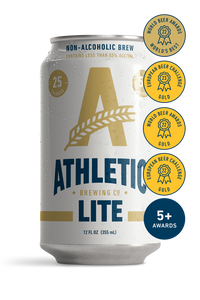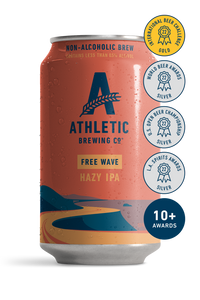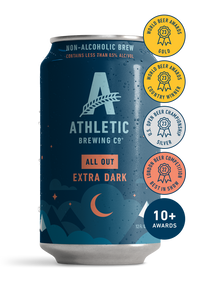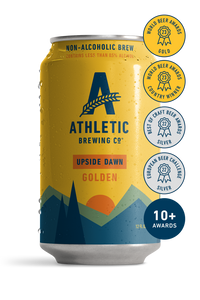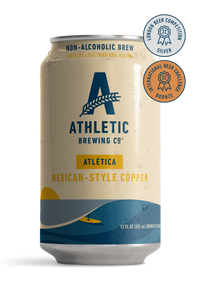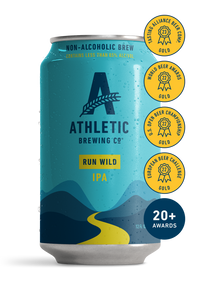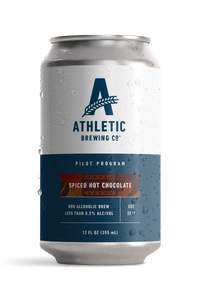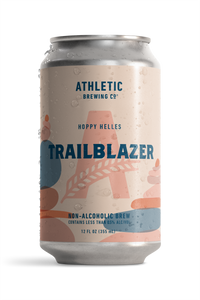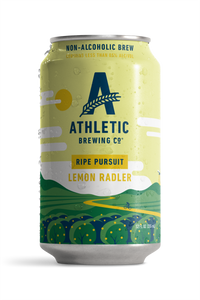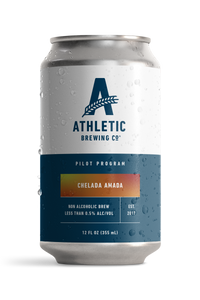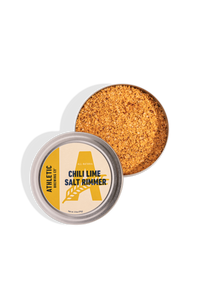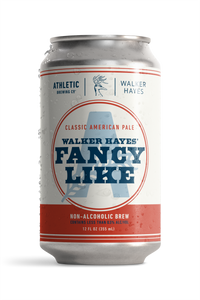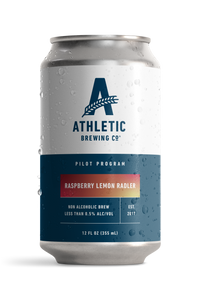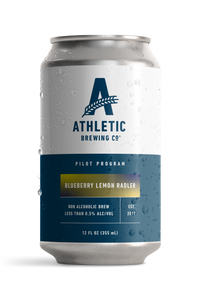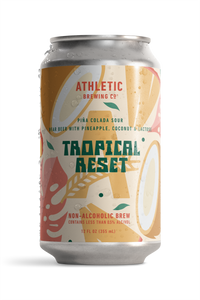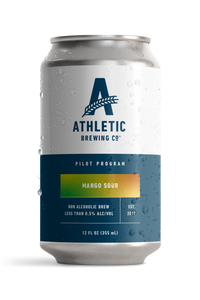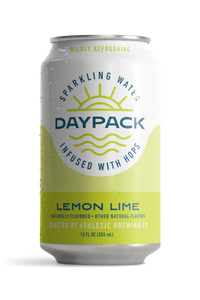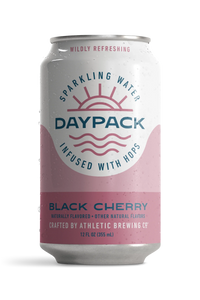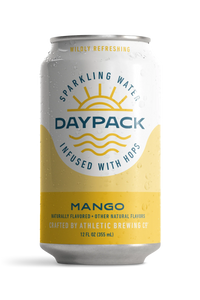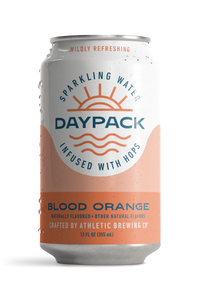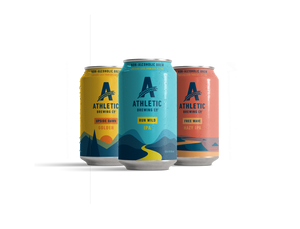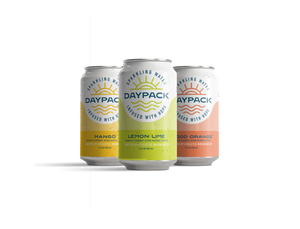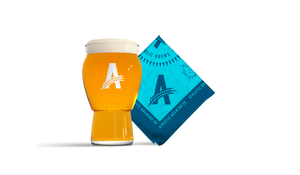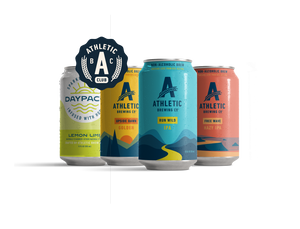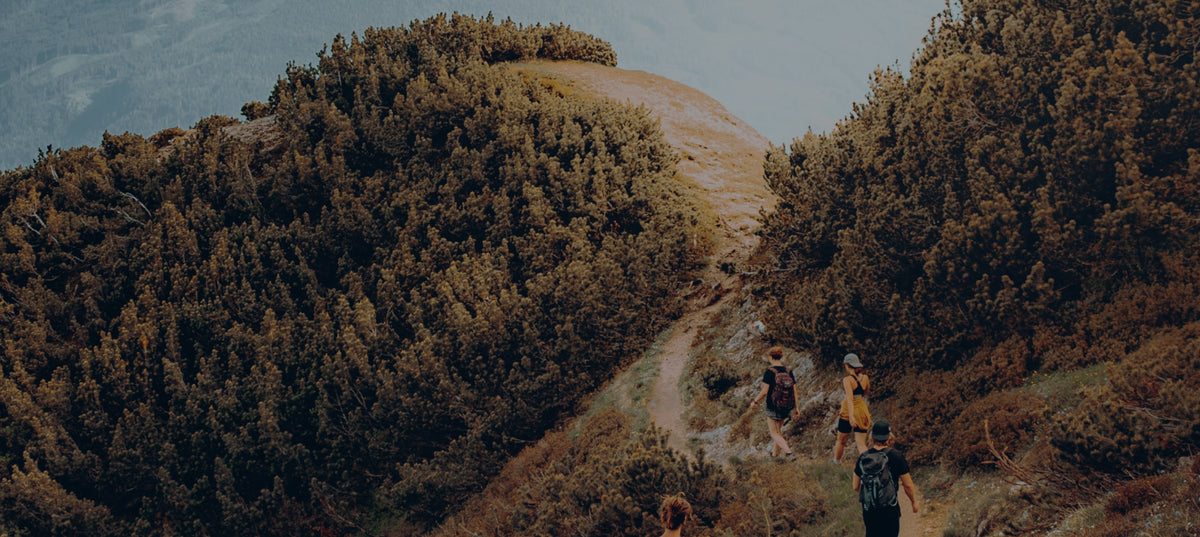My son is to the point now where he sees that I’m not drinking. He notices a difference now. Getting him into sports and him telling me, "Dad, I'm never gonna drink alcohol" – he’s 11, so he’s got a lot of time, but to hear an 11-year-old say that and to pass that along … It’s a huge accomplishment for me.
Matt Stevens prefers to stay busy – not just for the sake of staying busy, but because he has such a strong focus on community and team building that he can’t sit still.
His full-time job is in the Air Force as a SERE Specialist, which involves survival training of personnel. He also owns and operates a gym in the small community of Hurricane, West Virginia.
That alone would keep one pretty busy, but he also is a huge advocate for the local trail systems, and helps organize and support trail work days to help grow the trails into something pretty incredible. With the help of the community and Two for the Trails funding, the trail system has grown from 5 miles to an almost-complete 26.
“I love to highlight the trail system here because I think that is one of our biggest assets in the community,” Matt said. “When we first moved … there were 5 miles of hand-built trails that we had. The plan was to build 26 miles within the first 6 years. So we immediately got involved any way we could with the trail system.”
The $10,000 Two for the Trails grant went toward building a new shelter as a meeting place for the community. Matt’s excited to start hosting events that feature the wonderful trail system that the community has built up over the years.
An ambassador for nearly 3 years, Matt has been an incredible and inspiring member of the Athletic Brewing community. Read on to learn more about his journey toward a healthier lifestyle.
***
Tell me a little bit about yourself, and how fitness and sports came into your life.
Fitness and sports came into my life early on. I can remember back, my dad used to take me to the ice rink when I was in Chicago. I was 5. I vaguely remember it, but I do remember trying to put on my skates and trying to play hockey. Then [I got] into baseball. So sports have always been in my life. I’ve always been active.
Then the older I got, I feel like the sports went away because if you don’t make it to a certain level at a certain point in your life, it kind of goes by the wayside, then you have kids and it’s their turn. So sports for me now looks more like obstacle course racing, running, more of that hybrid athlete-type of setup. Lifting weights, carrying stuff. Fitness has changed and evolved for me over the years. Now it’s been a lot of fun training for some of the things I'm getting ready to do.
Next week [late April], I’m leaving for Jacksonville, Florida, to do the GORUCK Games. GORUCK Games has their first ever official competition. I’ve been training for that since January: 30 pound ruck, carrying sandbags around, doing sandbag cleans, sandbag over the bar, weighted rope climbs. It’s been a crazy ride up until this point. It’s been tough. I’m dealing with a couple minor injuries here and there, but for the most part, I’ve been pretty healthy. Physically and mentally I feel pretty good going into it, so I couldn’t ask for more.

Are there any other competitions on the horizon for this year?
I hate to say it, but I don’t ever want to pick up another sandbag after this week, which I probably will do, but I say that now. After the GORUCK games are over, I want to start focusing on Hyrox. I’m looking at going to Hyrox Chicago in November, so that will be my next competition.
You have a lot going on in your life! Let’s start with the gym you own, ShotFire Fitness. How did you get started on that venture?
Shotfire Fitness is a functional fitness gym where we do functional fitness in group sessions. My wife Emily and I purchased an existing gym last year, and we completely rebranded the whole thing. Changed the name, changed the whole structure of the business. It wasn’t on a whim, but it definitely was a 6-month chunk of time where we went back and forth whether or not we wanted to do that.
It’s been quite the journey. It’s never really been a struggle, which is a good thing. We have about 75 members, and we run classes every single day. It’s awesome. I thoroughly enjoy it. I love it. I love our members, and I love what we stand for in the community.
We started the nonprofit in 2020 in the middle of the pandemic when nobody thought it was possible to do, and run races when every event was getting canceled. We felt like we had to do a little bit more for the community. I’m a teacher by trade, that’s my profession – I’m an instructor in the Air Force. So I think that whole mindset of me trying to teach and train other people really put a lot into our thought process into trying to get and operate that gym.
That, and me getting older and shying away from actually competing – which here I am with two competitions up this year … but I’m going to step away from that and help other people. I like to watch other people suffer during the workouts, so my mindset, in what I want to help other people do, I want to watch other people succeed at events. I think that’s on the horizon for us.
My 3 to 5 year plan is I want to get a team of people together to go out and do these competitions not only here locally but nationally. That’s what I want to see happen, and that was one of the biggest reasons for us purchasing the gym, is to have that camaraderie within the community.

You also work in the Air Force: Can you talk more about your job and what you do?
I’m a SERE specialist. SERE stands for Survival, Evasion, Resistance and Escape. What we do is teach high-risk of isolation personnel and train them to survive. If something happened locally or in a deployed location, whether it’s hostile or a non-threatening environment, we teach them how to survive. I also work closely with U.S. Special Warfare Recruiting Service.
I’ve been in the Air Force for 18 years in September. I’ll end up doing 21 years total before I'm eligible for retirement, but at this point, I may stay in until they kick me out at 30 years. It’s too fun and it’s too easy of a job to walk away from. Last week I was doing some training – got to hop on a helicopter, get hoisted up, fly around a little bit. You can’t beat a day in the office: in the back of a helicopter flying around.
When I was 18, the year before my senior year, I had already made up my mind that I was going to join the military. At the time, it was going to be the Marines. I realized shortly after the Air Force had a better lifestyle, so I decided I was going to join the Air Force, do 4 years, get out and move back home. Well, fast forward, 4 years go by, there’s really no jobs, I had nothing lined up, so, I was like, well, I'll just enlist for another 6. That 6 took me to 10. As you can imagine, 10 years, that’s halfway [to retirement], who swims across the Atlantic Ocean and decides they want to go all the way back by the time they could’ve just swam all the way across. So here I am, 18 years, close to retirement. That’s kind of my career in a nutshell. I enjoy it. I love it. I love helping others. I love watching other people succeed both militarily and in the civilian world.
You’re also a huge advocate for the trails, and your local trail system was one of the first recipients of our Two for the Trails grant funding in 2021. First of all, congratulations! Can you talk more about your work advocating for your local trails?
I love to highlight the trail system here because I think that is one of our biggest assets in the community. When we first moved to West Virginia from Las Vegas in April 2020, there were 5 miles of hand-built trails that we had. The plan was to build 26 miles within the first 6 years. So we immediately got involved any way we could with the trail system, because at the time we had probably about 10 to 12 volunteers that would come out every Saturday morning from about 8 am to noon and just hand dig trails.
The first time Emily and I went out there, we ran, and I was like, this is the perfect spot for a venue. This would be an awesome place for an OCR event – I was thinking way bigger than I needed to at the time. Then I was like, I’ll just throw my own event. So we ended up throwing our own event 6 months later in October of that year when we started the nonprofit. We had our first honor race out there, and we’re having another event soon, the Meeks Mountain Trail Alliance 100K.
Then the trail system just kind of just blew up. I think the pandemic just pushed people to get outside [and help maintain the trail]. They view that as their workout. They go out there, cut down trees, cut down brush. Now every weekend we have 18 to 25 people that come out. We’re up to 22.5 miles, so we’re way ahead of schedule. We’ll end up finishing 26 miles this year.
When I heard about Two for the Trails, it was a new thing that you guys had started, and I was like, I'm just gonna put in for a grant.I don’t know for how much; I really don’t know what I’m doing, I really don’t know if I’ll get a grant because we’re such a small community and our trail system is so new. But we were granted $10,000, and with that, there were different avenues of what we could’ve done with that money. We used a portion for a shelter that we got built. It’s a 40’x30’ for events and race venues that want to use it, picnics, music. That’s what we used the portion toward.
It’s still being built, and the plan is for you guys to come out and have a huge party with a bunch of beer. $10,000 might not be that much for some [other] trail systems, but for here, in this town, that was huge. It went a really long way.

How did you find the ambassador program?
I found it through my friend Nick. He said, “If you like this beer so much you should just be an ambassador.” I’d been sober for probably a year at the time. I love the product, love the beer, I can drink it and still be a part of the group of people who are drinking socially or at a party. It just all made sense. From there it blossomed into more. Now, Two for the Trails, then our non-profit, and our gym, and everything else we’ve got going on. It just all tied in together. That’s where it started. Since then, we’re doing pretty good, spreading the word about Athletic.
How has the ambassador program helped you in your professional, personal or athletic endeavors?
Personally, it’s helped me a lot. On March 31, I’ve been sober for 3 years. Three years ago, I decided I wanted to do 30-day sobriety. I was living in Vegas, I was partying all the time, but I think the alcohol just kind of wore me down. It was detrimental to my recovery. So I was like, I’ll do 30 days and see what that does to me.
So I did 30 days. I look back, my sleep was better, my recovery was faster – it just kick started all that. The ambassador program gave me that [momentum] to keep the streak going. I didn’t have a problem not drinking, but it helped boost that to the next level. You guys have an awesome team of people. It’s cool to see everyone else around the country and what they’re doing. Other ambassadors, Two for the Trail grant winners … it’s really a neat program. And then sharing beers at the events is really cool.
What are some of your proudest achievements?
Having two kids and raising them. My son is to the point now – he’s 11 – he’s to the point now where he sees that I’m not drinking. He notices a difference now. Getting him into sports and him telling me dad I'm never gonna drink alcohol – he’s 11, so he’s got a lot of time, but to hear an 11-year-old say that and to pass that along … It’s cool to see him see me and my wife doing the stuff that we do alcohol free. It’s a huge accomplishment for me.
Relationship-wise and personally … doing the things that I'm doing at 37 years old – I never thought I’d be doing at 37, like running 10-12 miles with a 30-pound weight vest and getting ready for the GORUCK Games kind of later on in life. Just going strong still is an accomplishment to me. The business … there’s so much to be happy about around here. Growing the community with nonprofit and business that we started is a huge accomplishment for us.
What is a bucket list event or race that you’d love to compete in?
I’ve done a lot with Spartan. I was on the Air Force Special Warfare team, and we traveled around and did a lot of cool Spartan races. One of my favorite events was in Killington, Vermont, because it was the original Spartan event. Hawaii has been on my list. Unfortunately last time we were out there we were unable to race. Emily wasn’t feeling too well and I was working. I would say Poland or Iceland, if they ever had a Spartan event, that would be cool to do … something overseas eventually. I know it sounds weird, but going through something so brutally cold, and everybody else is having the worst time of their life, I think that would be mentally challenging and physically challenging at the same time.
And honestly, coming up, the GORUCK Games, just to be an invited athlete to that is a bucket list item in and of itself. Looking at the names of people who are going to be there and to be among those individuals is exciting. It’s pretty rewarding and humbling at the same time.

What’s your favorite recovery food?
Oh man. It’s a toss-up between pizza and the hot ‘n’ sticky chicken from a local restaurant called the Bridge. It’s a staple around here. Health-wise, if I want to be healthy, we’ve been making turkey breast, so I think that’s my go to: vegetables and rice.
What do you like to do on rest days?
Rest days lately have been active recovery, which turns into a workout. I have no coach right now. I’m doing my own training plan, so I don’t have anybody to tell me not to do that. Yesterday, for instance, I was like, “Oh I’ll just go out for a nice jog.” Next thing I know, I'm trying to set PRs on these Strava links and running 5:40 pace uphill with no end in sight. But recovery days used to consist of coaching at the gym, yelling at other people, trying not to do anything crazy that’s going to hurt myself. But, active recovery, bottom line, is normally what it looks like: a light jog, or swim if I can get to a pool.
What gets you up and out of bed every day?
What gets me up and out of bed right now is that my schedule is packed so tight with everything, between a full-time job in the Air Force, running the gym, trying to workout for a pretty tough competition. What drives me is that getting up at 4:45 – that’s my time to workout, because if I don’t, I miss my window of opportunity. I get up at 4:45 every day, Monday through Friday, sometimes Saturday, and I train from 5:30 to 6:30, and then go to work. In afternoon, it’s Emily’s time to work out, and then I coach classes form 4:30 to about 7 pm. If I don’t hit it in the morning, I miss everything, so that’s my motivation. I gotta get up and get the day started.
What does living without compromise mean to you?
Living without compromise to me is living a life free of guilt in what you put into your body. Just the freedom of knowing that you don’t have any negative substance in your body – that you can just live happy and free and train to the best of your ability without having to worry about all the nuances of bad things in the world.
If you’re interested in joining the ambassador program, visit our Ambassador Community Page and sign up to be notified when applications open!
